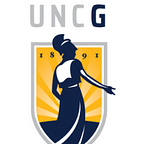Getting books to tribal families could change the world
Reading should not be presented to children as a chore, a duty. It should be offered as a gift. — Kate DiCamillo
But what about when access to books is limited or impossible? What then?
The project, Reading Nation Waterfall, is a direct response to the findings of a yearlong planning grant looking to answer and address these questions. After spending time with the people of the Blackfeet Nation (located near the border of Montana and Canada) the team found that despite Blackfoot parents seeing the value of reading to the future of their children, many of those children, due to a complex and interconnected web of barriers, appear to be growing up in book deserts with little access to books. During that planning period, the research team set up three Little Free Libraries in Blackfeet Nation and distributed over 1,000 books to the community.
Native Americans experience disproportionately high rates of poverty and unemployment. Schools, and in turn, school libraries, are often underfunded. Additionally, Native American cultures may not typically have the same tradition of visiting and using physical libraries located in communities; rather, they tend to have strong oral storytelling traditions. The Reading Nation Waterfall project reflects a significant paradigm shift for traditional community libraries. By placing Little Free Libraries in centrally located and convenient places — schools, grocery stores, Head Start programs, etc. — and by giving away librarian-curated new books instead of loaning them out, the team hopes to eliminate socioeconomic and physical barriers for Native American youth.
“Growing up in a tribal home you experience the benefits of family members telling you stories of how things happened — for example, ‘How the skunk got his tail’ or ‘Why the possum plays dead.’ Tribal people know the benefits of storytelling to the young children in close proximity (sitting on grandma’s lap),” said Tina Routh, president of the National Indian Head Start Directors Association. “We appreciate the efforts of UNC Greensboro in recognizing the benefits of reading to young children and wanting to get books into tribal homes. We hope that this is only the beginning and that in the future more tribal programs will get the benefits of reading to children.”
Starting this fall, UNC Greensboro will partner with five Native American tribes — Crow Tribe of Montana, Eastern Band of Cherokee Indians, Lumbee Tribe of North Carolina, Northern Cheyenne and Kewa Pueblo, formerly Santo Domingo Pueblo — and two national organizations, Head Start and Little Free Library. The goal of the three-year project is to break down existing barriers to literacy and improve reading scores among Native American youth by providing children and families who may live in book deserts with brand-new, carefully selected, and culturally relevant books. In order to get the work done, the team has been awarded a $1.4 million Institute of Museum and Library Services grant.
“This grant is a perfect example of a university coming alongside community partners and leveraging its expertise to study and address societal challenges. It’s a really beautiful synergy,” said Dr. Anthony Chow, associate professor in UNCG’s Department of Library and Information Science and principal investigator on the grant. “For me, this grant represents a lifetime achievement award. It’s a true privilege.”
Now more than ever, attention is on the disenfranchised, the oft-forgotten groups of people that fill the U.S. This amount of focus and “boots on the ground aspiration” could be the beginning of real change or at least attention on topics that are usually ignored. Over the next three years there is potential for change, potential for improvement. It won’t solve everything, but it’s a step in the right direction.
